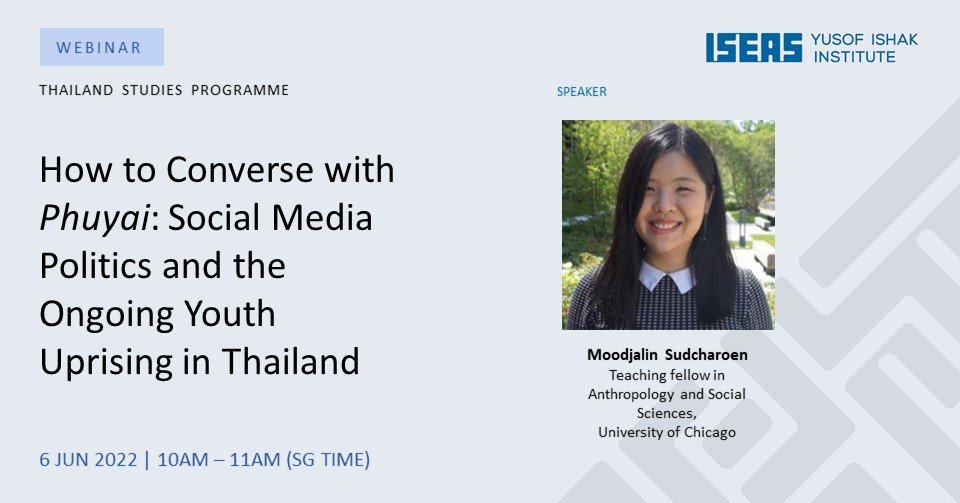Organizer: ISEAS - Yusof Ishak Institute
Description:
In mid-2020, young Thai protesters took to the streets to demand wide-ranging political and sociocultural reforms. Although their primary agenda was to protest the military-backed government of Prime Minister Prayut Chan-ocha and the country’s monarchy, the protestors also called attention to politics in smaller-scale institutions, including school and family. Streets were not the only sites where the protests took place. A series of Internet memes, YouTube videos, and other social media artifacts also became channels through which progressive ideas were disseminated and amplified. This webinar explores how one Facebook post by Thailand’s Ministry of Culture turned into different versions of Internet memes. The webinar is guided by two questions. First, what are the strategies of resistance that young digital protestors in today’s Thailand use to challenge the voice of authority? Second, how does the figure of children become a powerful medium and object for political claim-making? Youth-led protests in virtual spaces transform the state’s propagandistic artifacts into parodies and satires. The language of authority freely and unconventionally intermingles with youth language and humorous genres of speech. The study of such media artifacts suggests that the current sociopolitical divide in Thailand is structured by cultural assumptions surrounding notions of dek, “child”, versus phuyai, “adult” (literally, “big person”). Unlike Thailand’s previous pro-democracy movements, the ongoing youth uprising is explicitly and creatively dismantling the child-adult hierarchy that structures different scales of power relations in Thai society.
Speaker:
Moodjalin Sudcharoen (“Mood”) is a teaching fellow in anthropology and social sciences at the University of Chicago, where she earned her doctorate in anthropology. In August 2022, she will join the faculty of the Department of Anthropology at the University of Florida.
Click here to register.

